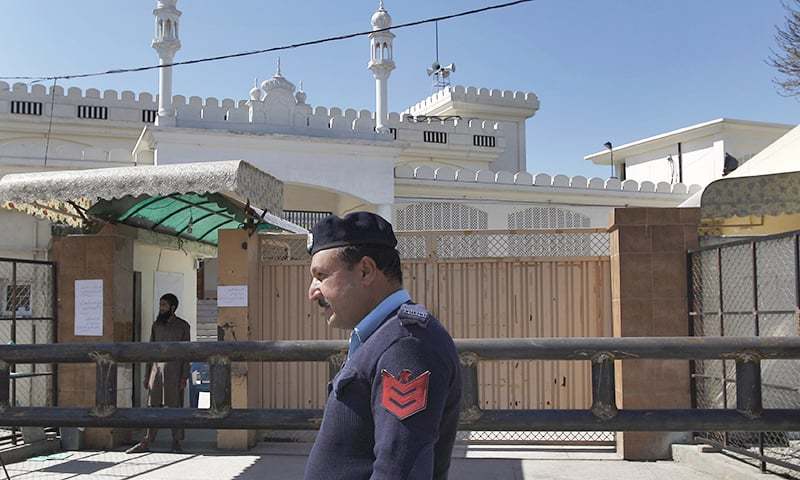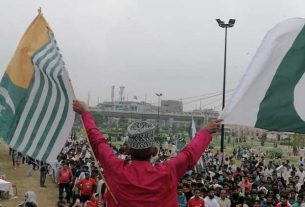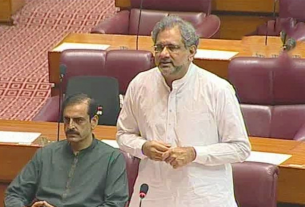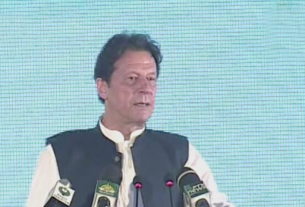KARACHI: Measures taken by the Sindh government to stop terror financing were discussed in a meeting held between Sindh Chief Minister Syed Murad Ali Shah and a US congressional delegation here on Wednesday at CM House.
The chief minister told the delegation that the Sindh government had seized/frozen 65 properties of four banned organisations under the United Nations Security Council (UNSC) Act 1948 and UNSC Freezing & Seizure Order 2019.
The delegation comprised US Congressmen Jim Himes, Sean Patrick Maloney, US Congressman and Member of the House Permanent Select Committee on Intelligence, Consul General of USA Robert Silberstein, Deputy Consul General Darian Arky and other American officials. Mr Shah was assisted by Home Secretary Kazi Kabir and principal secretary to chief minister Sajid Jamal Abro.
CM briefs US delegation on anti-terror financing measures, says action against unregistered NPOs after enactment of law
The chief minister said that 59 properties of Jamaatud Dawa, Falah-i-Insaniat Foundation and Jaish-i-Mohammad and six properties of Tehreek-i-Taliban Afghanistan had been seized/frozen under UNSC Act 1948 and UNSC Freezing & Seizure Order 2019.
“The existence of any proscribed organisation or entity has not been traced here in Sindh, and therefore no arrest or prosecution of any individual in connection with UN Sanction Regime 1267 and 1373 has been made,” he added.
Talking about terror financing-related cases, he said that 47 [terror financing] cases had been registered and were being investigated by Counter-Terrorism Department of Sindh police.
Talking about non-profit organisations (NPOs), the chief minister said that 527 or 11.5 per cent of all active NPOs’ survey was conducted to assess their vulnerability regarding terror financing.
The survey data has also been shared with ministry of interior, government of Pakistan.
He added that 4,693 inactive or non-functional NPOs had been de-registered, whereas further 2,828 inactive NPOs were in process of de-registration by the social welfare department.
He went on to say that 1,613 NPOs registered with industries and commerce department were also in process of de-registration in the first phase.
Mr Shah said that there were 25,426 NPOs registered in Sindh — 14,834 with industries department and 10,592 NPOs with the social welfare department.
The chief minister disclosed that 19 NPOs were under investigation in Sindh, out of that 14 NPOs were affiliates of proscribed organisations such as JuD, FIF and JeM, whereas five NPOs were being investigated for their terror financing vulnerability.
He also said that after enactment of the Sindh Charities Act 2019, action against unregistered NPOs would be started.
He said draft law had been approved by the provincial cabinet.
Mr Shah said that various policies such as NPOs’ registration and standard operating procedures regarding collection of sacrificial skins and hides had been issued and enforced to plug the implementation gaps in order to address terror financing-related issues.
Steps against money laundering
Talking about anti-money laundering action taken by the Sindh government, he said that he had constituted a taskforce on anti-money laundering under the home secretary.
The taskforce has directed stakeholders such as Pakistan Customs, Airport Security Force and Federal Investigation Agency for establishment of Currency Detection Units at major airports to deter and detect currency smuggling.
The visiting delegation appreciated the efforts made by the government to control terror financing.
‘Sindh govt has no funds for defunct Fata uplift’
Murad Ali Shah has said that under 18th Constitutional Amendment responsibilities of provinces have increased manifold, therefore the provincial government(s) could not spare funds from their shares in the National Finance Commission for defunct Federally-Administered Tribal Areas (Fata).
“The federal government has the capacity to allocate special funds from its share for the development of defunct Fata,” he added.
The chief minister stated this on Wednesday while responding to a question raised by a member of an inter-provincial parliamentary delegation visiting Sindh on the invitation of Democracy Reporting International (DRI) here at CM House. The delegation was led by Javed Malik of DRI.
The interaction was attended by provincial ministers Saeed Ghani, Imtiaz Shaikh and adviser to CM Murtaza Wahab.
The delegation members were MPAs from Balochistan: Qadir Nail, Ahmed Nawaz, Shakeela Qazi, Bushra Rind, Nasrullah Bareach and Runina Khan.
Khyber Pakhtunkhwa MPAs: Somi Falak Naz, Rabia Basri, Zeenat Bibi, Shafiq Afridi, Naeema Kishwar and Saeed Iqbal Mian.
Punjab MPAs: Shamsa Ali, Faiza Malik, Abdullah Warraich, Nadeem Abbas and Farha Yousaf.
The chief minister said that the federal government, just to squeeze the provinces, had deliberately raised the issue of curtailing three per cent funds from the share of provinces for development of defunct Fata.
“This is totally unjustified and people of the provinces would not allow their chief minister to give away their rightful share at the cost of their development,” he said and added the federal government had an ample share in NFC therefore it should finance development by itself.
Responding to another question, Mr Shah said in 2010 the PPP government had given NFC award on multiple criteria despite the fact that it had different governments in provinces. In Punjab PML-N was in power, in Khyber Pakhtunkhwa ANP had government, in Balochistan a coalition government was formed by the PPP and in Sindh the PPP had its government.
“It was a gigantic task to develop consensus for the first time to award NFC on multiple criteria,” he said and added its credit went to former president Asif Ali Zardari.
Replying to a question asked by a Balochistan MPA, the chief minister said that the Sindh government had never usurped water share of Balochistan but on the contrary Balochistan was given water from Guddu Barrage and Sukkur Barrage Right Bank NW Canal.
He added that at Sukkur Barrage there was a technical issue; the right bank canal couldn’t take water until a certain water level developed in the river.
To another question of a KP MPA, the chief minister said that the Pakhtuns living in Karachi had merged in Sindh.
He assured the MPA that the Pakhtuns living in Karachi were quite happy in terms of their financial and social status.
To another question, the chief minister said that he had a plan for expansion of mazar of Hazrat Lal Shahbaz Qalandar but the people living around it could not be removed forcibly.



